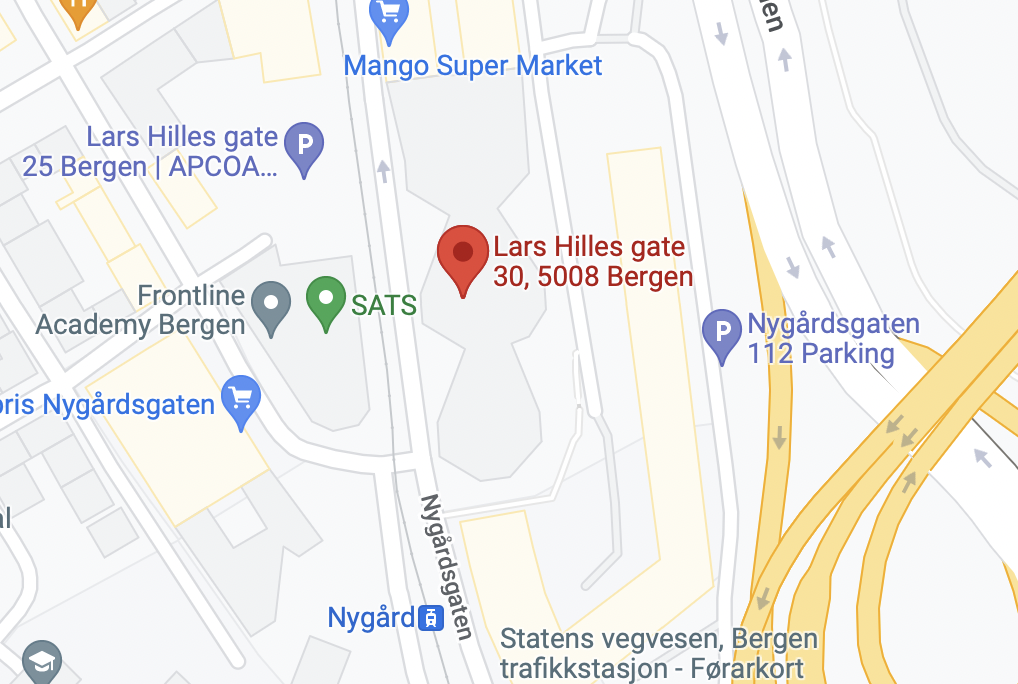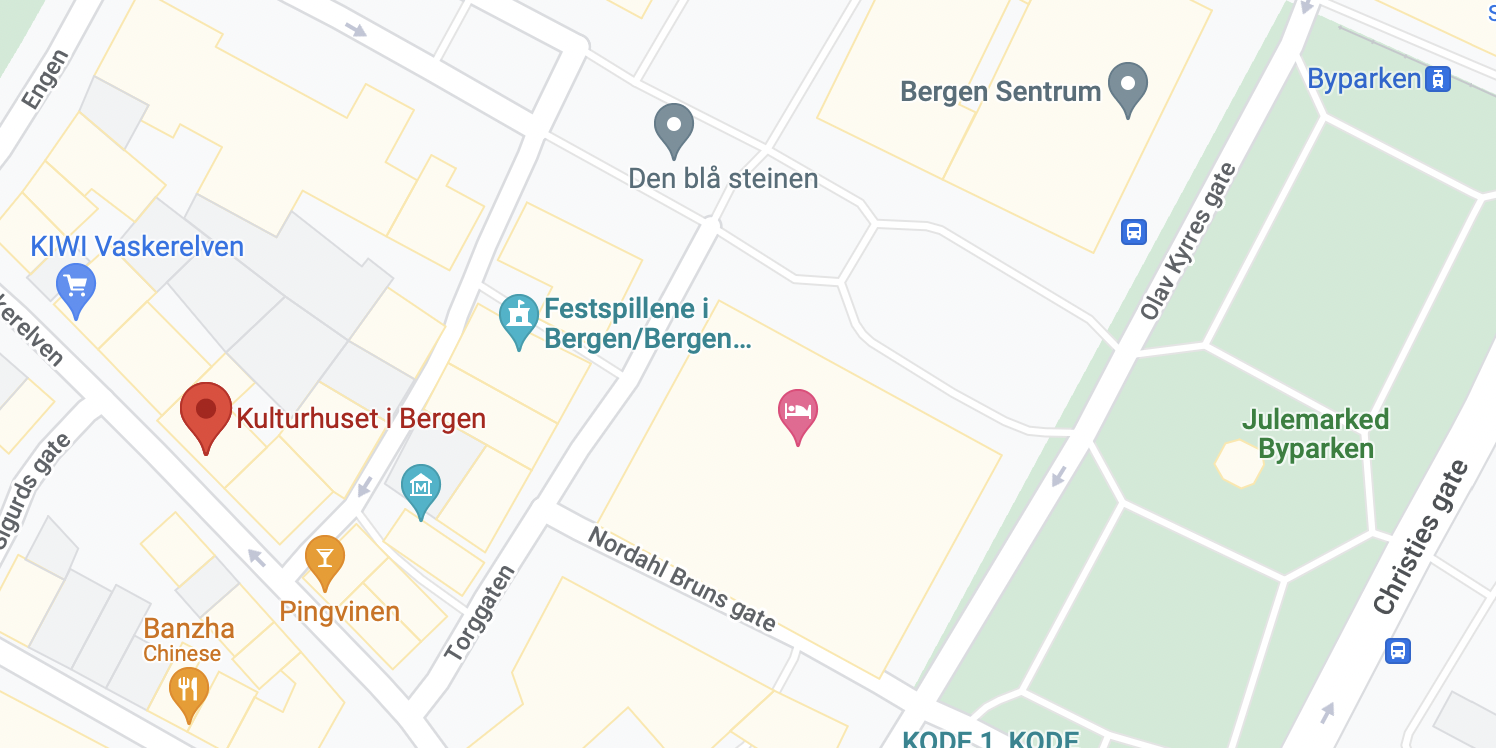
- This event has passed.
MediaFutures Annual Meeting
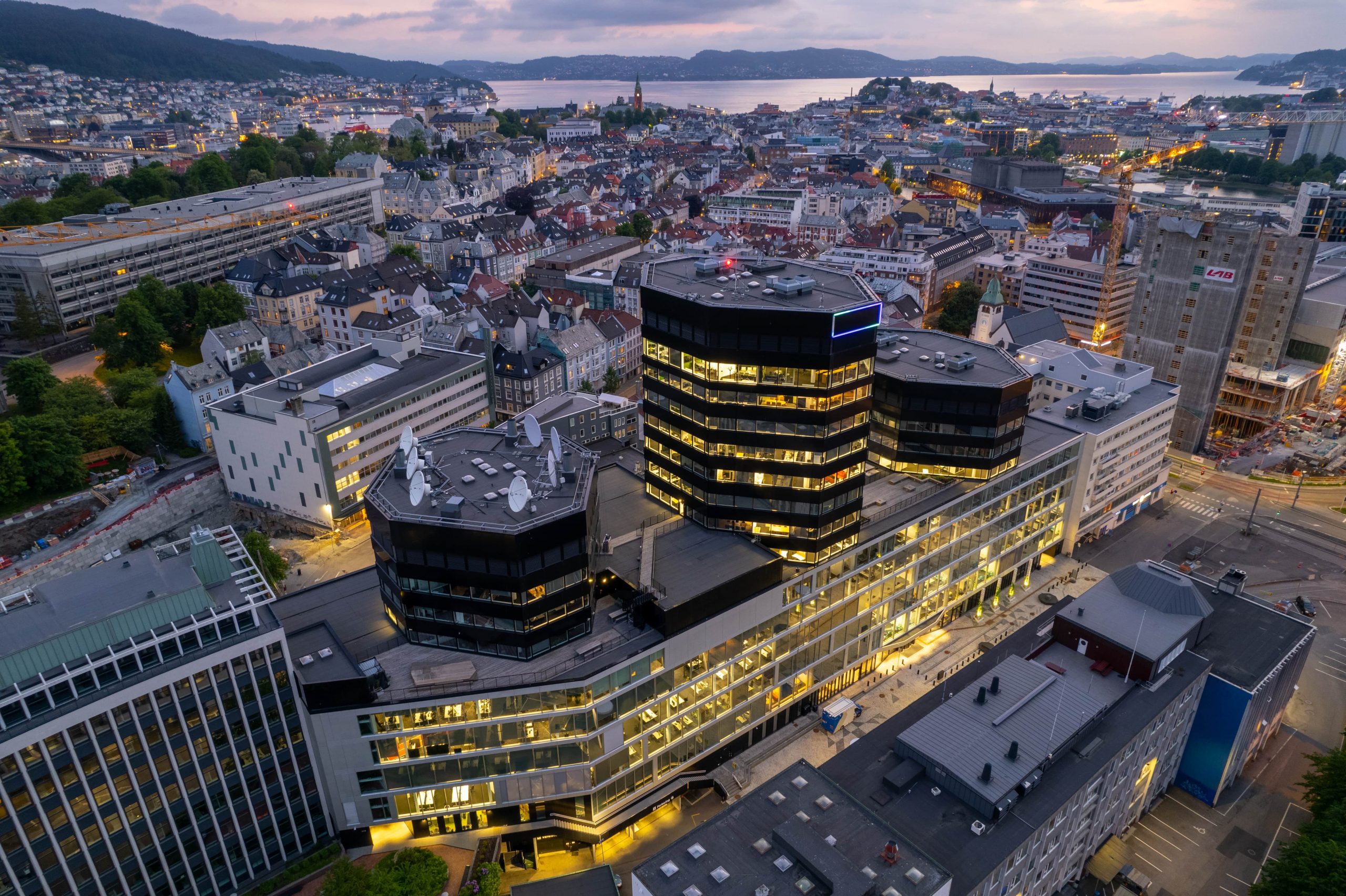
MediaFutures is a centre for research-based innovation at the Department of Information Science and Media Studies, University of Bergen. The centre operates under the Norwegian Research Council’s Research-based Innovation (SFI) scheme, and its main goal is to generate innovation and value creation for the Norwegian news media and media technology industry through long-term research on responsible media technologies.
Held on November 15-16 at Media City Bergen, Norway, the 2022 Annual Meeting constitutes a forum for the exchange of scientific results and industry insights within the field of responsible media technology.
Following last year’s success, the 2022 Annual Meeting is expected once again to attract, and bring together Norwegian and international researchers, and industry practitioners with the intent of engaging in discussions on topics related to:
- Media experiences
- Recommender technology
- Content production and analysis
- Content interaction and availability
- Norwegian language technology
Join us for inspirational keynote talks, prototype demonstrations, presentations held by our researchers, and industry partners, and poster session.
We are pleased to announce our keynote speakers – Birgit Gray, Christian Sandor and Siv Juvik Tveitnes.
PROGRAM
Day 1 – Tuesday Nov. 15
12.00 – Registration
13.00 – Welcome address by Centre Director Christoph Trattner
13.10 – Greetings from Gottfried Greve, Vice-Rector for Innovation, Projects and Knowledge Clusters UiB
13.15 – Towards Trustworthy AI in Media Tools
Birgit Gray, Innovation Manager at Deutsche Welle
13.50 – Break
14.05 – Responsible Personalization and Recommendation: an Overview
Mehdi Elahi, Associate Professor, UiB
Responsible Personalisation and Recommendation: an Industry Perspective
Lars Skjærven, TV2 and Thomas Husken, BT
Popularity Bias in Recommendation
Anastasiia Klimashevskaia, PhD candidate, MediaFutures
14.45 – Break and snacks
15.00 – Visual Content Verification
Duc Tien Dang Nguyen, Associate Professor, UiB
15.15 – Fake News Detection
Ghazaal Sheikhi, Postdoctor, MediaFutures
15.30 – Break
15.45 – Measuring Harmful Representations in Scandinavian Language Models
Samia Touileb, Researcher, MediaFutures
Why is SFI Innovation So Hard?
Eivind Throndsen, Academic Liaison, Schibsted
16.15 – Poster and demo sessions
19.00 – Dinner at Kulturhuset
Day 2 – Wednesday Nov. 16
9.30 – Six Battles to Win for Future Growth in News Media
Siv Juvik Tveitnes, EVP Schibsted News Media
10.05 – Break
10.20 – Understanding news experiences with innovative methods
Hallvard Moe, Professor, UiB
Erik Knudsen, Researcher, MediaFutures
Marianne Borchgrevink-Brækhus, PhD candidate, MediaFutures
11.00 – Break
11.15 – Past and Upcoming 22 Years with Augmented Reality
Christian Sandor, Professor Université Paris-Saclay
11.50 – Break
12.00 – Media Content Interaction & Accessibility
Njål Borch, Researcher, NORCE
Morten Fjeld, Professor, UiB
12.30 – Lunch
13.30 – Workshop. Thinking beyond media use. How can we make sense of future media experiences?
Irene Costera Meijer, Professor, Vrije Universiteit Amsterdam
John Magnus R. Dahl, Postdoc, MediaFutures
15.00 – Workshop. Synthetic Media for the Newsroom
Nicholas Diakopoulos, Associate Professor, Northwestern University
KEYNOTES
Birgit Gray, Innovation Manager at Deutsche Welle
Birgit Gray specialises in future media and resulting changes for broadcasters, content providers, creators, and business processes. In her role as Innovation Manager, she explores the use and impact of emerging media technologies and tools, innovation in news services, future facing market developments and innovation/transformation approaches. In recent projects, she covered topics such as Artificial Intelligence, Blockchain, AI-Powered Tools, Digital Audio and Responsible AI. As a Strategic Media Consultant, Birgit worked with European media companies and has more than a decade of work experience in London. She has an industry background in broadcasting and holds a Master’s in communication and business studies.
At the MediaFutures 2022 Annual Meeting, Birgit will talk about the road Towards Trustworthy AI in Media Tools.
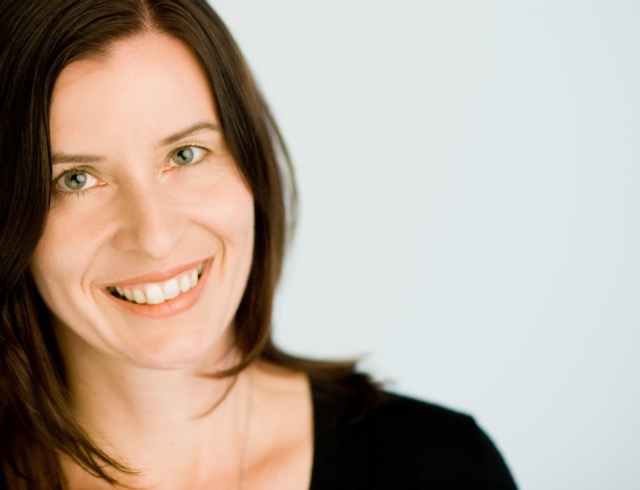
Birgit Gray
Learn more
Media companies increasingly use AI-powered technologies in content production and analysis workflows – also as integrated components in media tools that support the work of journalists and content experts.
In her keynote, Birgit first introduces the concept of Trustworthy AI and describes associated needs of media companies regarding AI services from external technology providers. Using a concrete example developed in the AI4Media project, she shows how an AI component for DW’s Truly Media verification tool was enhanced with trustworthy AI elements related to transparency and robustness. Birgit then highlights key learnings and challenges in this process, including the need for tailored transparency information and integration into user experiences.
Birgit’s talk aims to raise awareness for Trustworthy AI in media processes and practical approaches that can help to realise AI guidelines and principles.
Christian Sandor, Professor at the Universite Paris-Saclay
Christian Sandor is a professor at the Université Paris-Saclay and the leader of the VENISE team at the CNRS (Centre National de la Recherche Scientifique). Since the year 2000, his foremost research interest is Augmented Reality – a technology he believes will have a profound impact on the future of mankind.
In 2005, he obtained a doctorate in Computer Science from the Technische Universität München, and have been working with leading research groups, and institutions around the world. In 2012, he was awarded in Samsung’s Global Research Outreach Program. In 2014, he received a Google Faculty Award for creating an Augmented Reality X-Ray system for Google Glass. In October 2020, he was appointed Augmented Reality Evangelist at the Guangzhou Greater Bay Area Virtual Reality Research Institute. In 2021, Dr. Sandor was named “Associate Editor of the Year” by IEEE Transactions on Visualization and Computer Graphics. Read more about Christian here.
During MediaFutures 2022 Annual Meeting, Christian will talk about Past and Upcoming 22 years with Augmented Reality.
Christian Sandor
Learn more
Augmented Reality (AR) embeds spatially-registered computer graphics into a user’s view of the real world. During the last 22 years, AR has progressed enormously from a niche technology to a widely investigated one.
This keynote consists of two parts. First, I speak about how major challenges for AR have been solved over the last 22 years. Second, I speculate about what the next 22 years are going to bring.
The goal of this keynote is to present a Birdseye view of the AR domain, including the balance of power between the major AR forces US and China. In my view, Europe has a very big, possibly almost impossible, challenge ahead to catch up. I hope that my talk will contribute to laying the seeds of a major European AR initiative.
Siv Juvik Tveitnes, EVP Schibsted News Media
Siv Juvik Tveitnes is the Executive Vice President for Schibsted News Media, the leading digital media division in Scandinavia and a part of the Nordic family of digital brands, Schibsted. News Media consists of a broad portfolio of brands such as Bergens Tidende, Stavanger Aftenblad, Aftonbladet, Svenska Dagbladet, Omni, VG and Aftenposten. In addition, Schibsted’s news division has several digital niche products, with the podcast platform Podme among them. In total, News Media’s brands have over 600 million monthly visits. In 2021, News Media had a revenue of 790 M EUR and 2,400 employees.
Previous positions for Siv Juvik Tveitnes include COO for Schibsted Media, CEO in the regional Norwegian Schibsted-owned newspapers Bergens Tidende and Stavanger Aftenblad, and Managing Consultant at Accenture and Bekk Consulting AS. Tveitnes holds a Master of Science, Business Administration and Management from the University of Bath and a Bachelor’s degree in Social Sciences from the University of Bergen.
The title of Siv’s keynote speech: Six battles to win for future growth in news media.
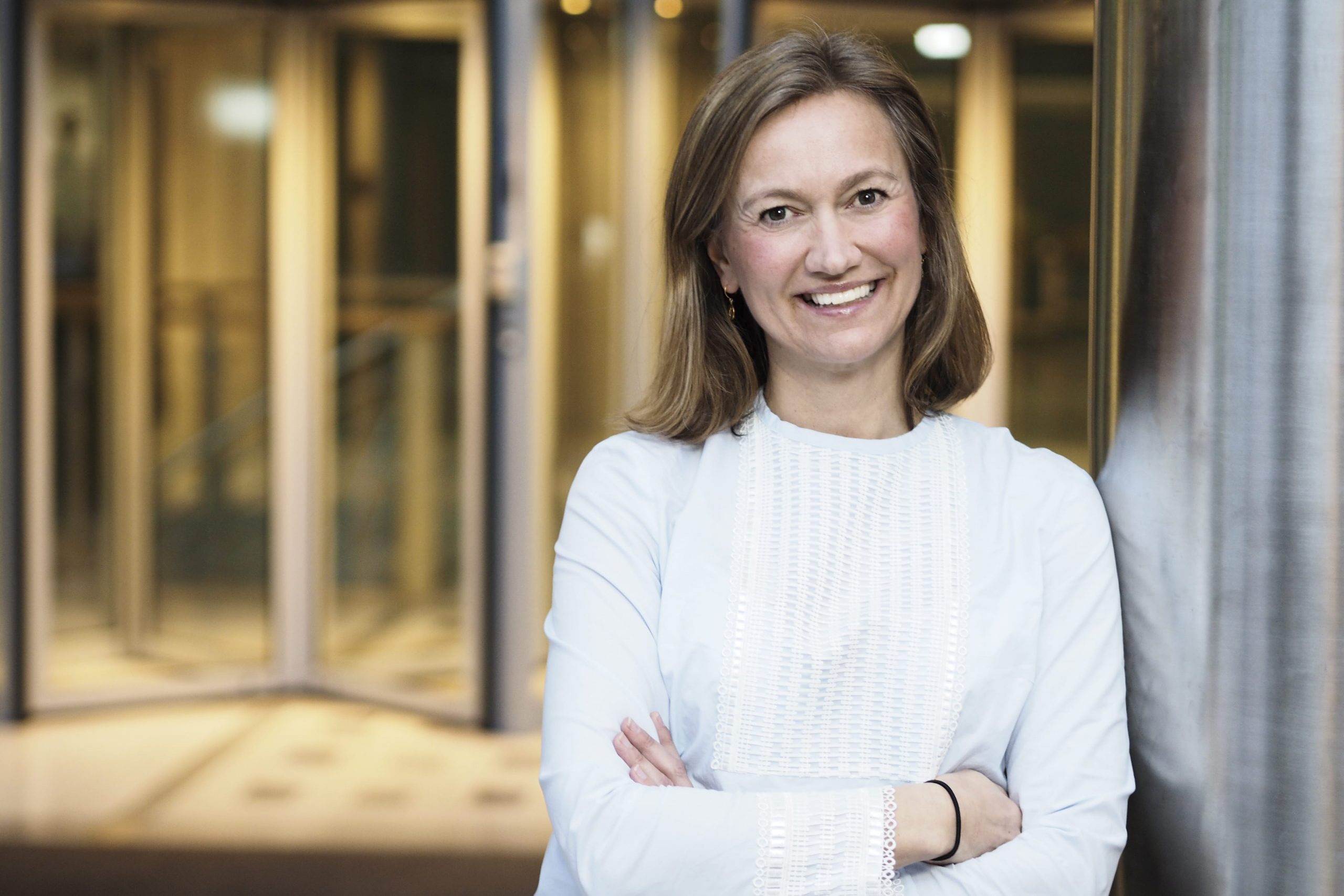
Siv Juvik Tveitnes
Learn more
For the last few decades, the media industry has faced enormous challenges. We have experienced – and are continuing to undergo – a digital transformation. The way in which people consume news and content has radically changed. Information flows are increasing exponentially, and our business models and ways of working have changed in step with new trends.
Through the transformation we have seen declining revenues, cost cutting, reorganisations, and concerns about the future. But two years ago, boosted by the pandemic, the picture turned when we achieved revenue growth for the first time in many years. And in 2021 we reached our goal of News Media as a whole becoming digitally sustainable. The same year we passed one million digital subscribers in total.
The time had come to shift focus from survival to growth. And to operationalise that ambition, we defined six must-win battles for the years to come. My keynote aims to give an insight into these battles and the challenges we face going forward.
WORKSHOPS
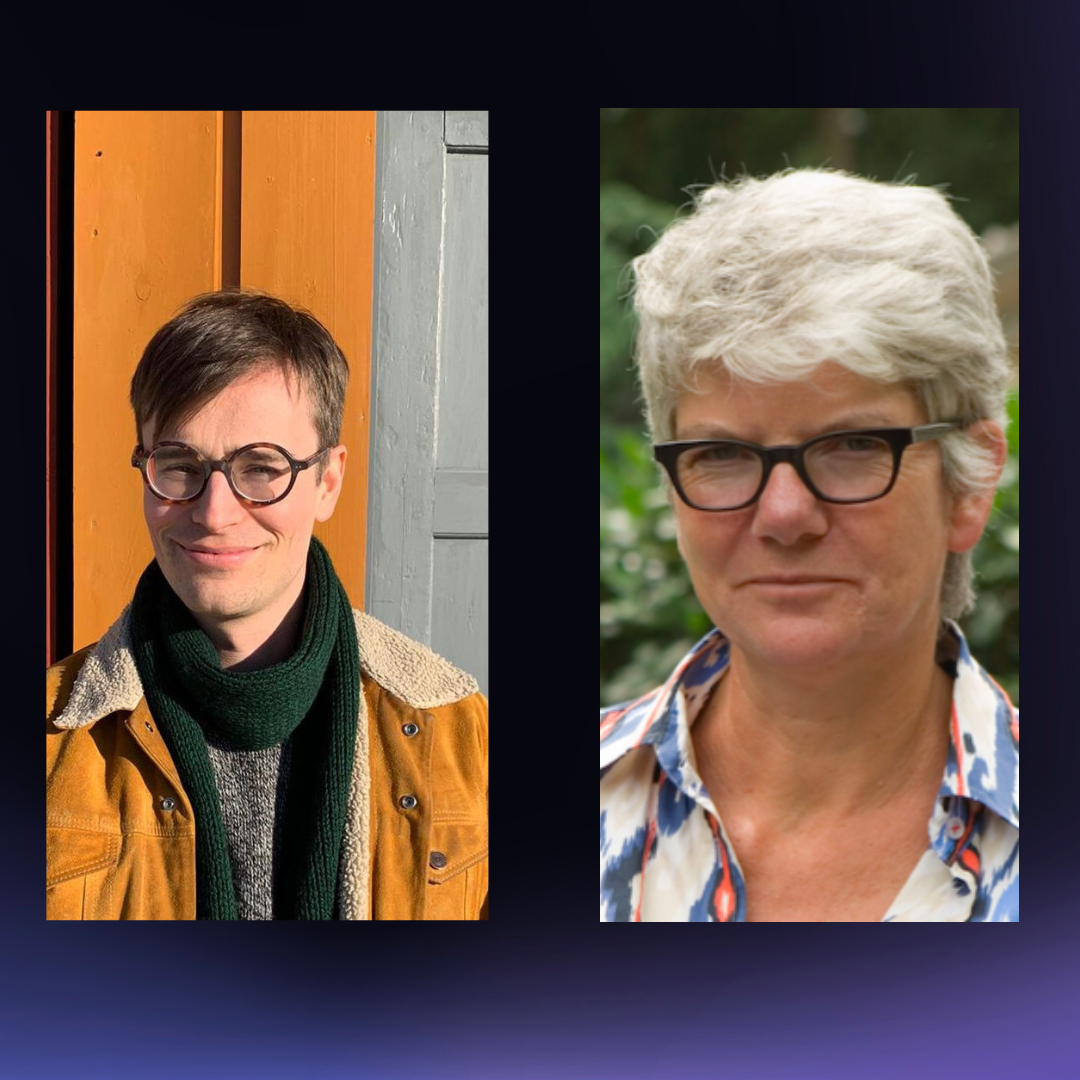
Title: Thinking beyond media use. How can we make sense of future media experiences?
Name: Irene Costera Meijer, John Magnus R. Dahl
Date: November 16th, 13:30 – 15:00.
Separate registration required: https://skjemaker.app.uib.no/view.php?id=13522842
Description
Media are no longer just the screens in the living room, the newspaper we pick up, or the record we put on. The media are all over our everyday world. For some time, media have been important to the constitution of our daily environments, as we have moved from using media to living in media. Younger people have taken the next step: Not only are they living in media, but media have also become integrated into their bodies, their identity and their world. Take away the smartphone from a 15-year-old, and parents will become aware how this technology is not only an important part of their world – young people are constructing their selves and making new digital worlds through their smartphones.
In this workshop we aim to make sense of this development and the consequences it may have for media scholars, media professionals and media organisations who are looking to understand the media experiences of the future. We will especially look at how teenagers use apps like Instagram, TikTok and dating apps to live in media and create digital worlds – in their specific individuality, but also to be social. You follow and share what matters for you on Instagram, you perform different trends on TikTok, and you literally put yourself out there and in touch with strangers on dating apps.
The workshop will include a brief introduction (by Irene Costera Meijer) and examples from fieldwork amongst teenagers in Norway (by John Magnus Dahl) before engaging participants in discussion on how to think beyond media use, including the development of new concepts and vocabularies.
Irene Costera Meijer is Professor of Journalism Studies and head of the Journalism Studies section at the Vrije Universiteit Amsterdam. She is a world leading journalism and media scholar having recently set the agenda for the audience turn in journalism studies. Her research appeared in many journals and books, and focuses on what news users value about journalism. She is also a professor II at the Research group for Media Use and Audience Studies of the Department of Information Science and Media Studies at University of Bergen.
Her research interests focus on audience studies and in particular on the impact of digitalization on changing practices of media consumption, media experiences and news use. When doing research she often collaborates with media organisations. This makes it easier to translate scholarly results into relevant suggestions for every day professional practices and vice versa, understanding the fundamental dilemmas of professional practices and translating these into academic publications. Costera Meijer is also on the editorial board of the academic journals Digital Journalism and Journalism Practice.
John Magnus R. Dahl is Postdoc in WP1 Understanding Media Experiences at MediaFutures. He holds a MA in Rhetoric, Argumentation and Philosophy from the University of Amsterdam and a PhD from the Department of Information Science and Media Studies at the University of Bergen.
Dahl is interested in the relationship between culture, communication, and politics in a broad sense, as well is the development of ethnographic methods within media studies and rhetoric. He is currently working on a project of how Norwegian public broadcasters relate to, or do not manage to relate to, the media experiences and social and cultural needs of young people.
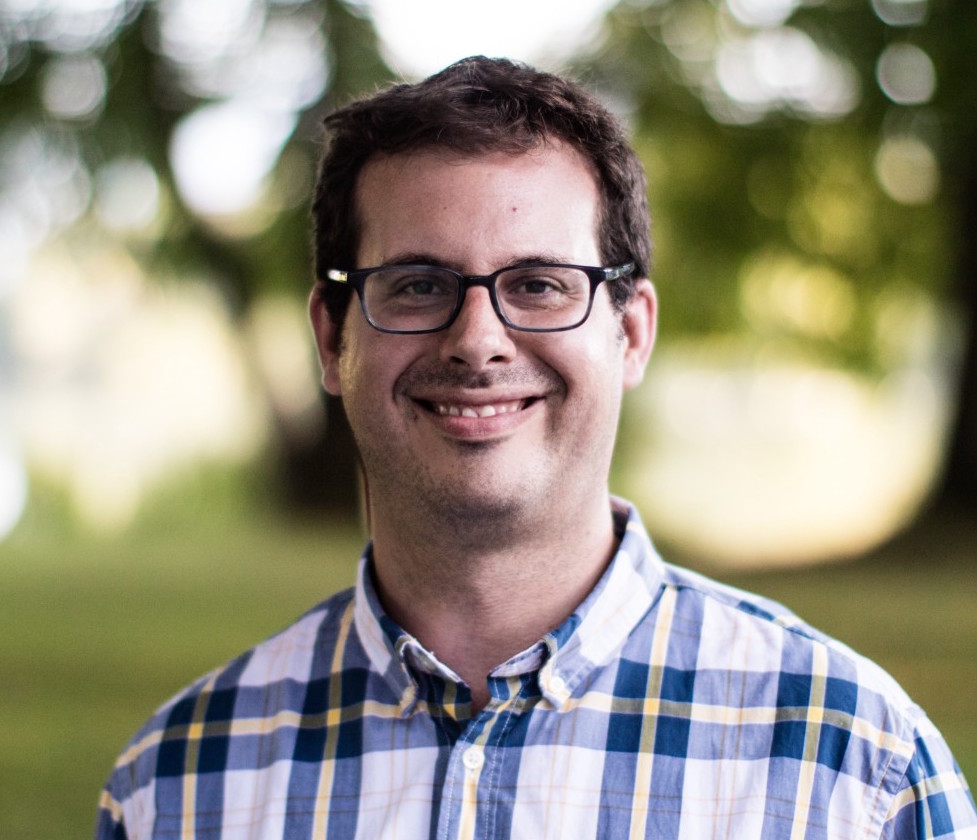
Title: Synthetic Media for the Newsroom
Name: Nicholas Diakopoulos
Date: November 16th, from 15:00.
Separate registration required: https://skjemaker.app.uib.no/view.php?id=13564988
Description
Ever heard of GPT-3 or DALL-E and wondered if these new AI models for generating synthetic media could be useful in the newsroom? In this workshop we’ll demystify these technologies and explore ways in which they could be productive in various newsroom tasks. Bring your laptop for a chance to try it out and brainstorm new possibilities.
Nicholas Diakopoulos is an Associate Professor in Communication Studies and Computer Science (by courtesy) at Northwestern University where he is Director of the Computational Journalism Lab (CJL) and Director of Graduate Studies for the Technology and Social Behavior (TSB) PhD program.
Diakopoulos’ research is in computational journalism with active research projects on (1) algorithmic accountability and transparency, (2) automation and algorithms in news production, and (3) social media in news contexts. He is the author of the award-winning book Automating the News: How Algorithms are Rewriting the Media from Harvard University Press.
For some of his latest thinking and writing on automation and algorithms in journalism see his column in the Columbia Journalism Review.
PRESENTATIONS
Responsible Personalization and Recommendation: an Overview
Mehdi Elahi, Associate Professor, UiB
Responsible Personalization and Recommendation: an Industry Perspective
Lars Skjærven, TV 2 & Thomas Husken, BT
Popularity Bias in Recommendation
Anastasiia Klimashevskaia, PhD candidate MediaFutures
Abstract:
Personalization and recommendation empower media applications to support consumers in discovering additional media content (e.g., news articles, videos) and to keep them engaged. One of the grand challenges in this field is that common recommendation approaches may have a little potential for the discovery of new types of content for the consumers and they might cause the “popular” media content to become even more popular. Such a problem can ultimately lead to a number of undesired effects (e.g., bias in recommendation, lack of diversity). Responsible personalization and recommendation aim to address these phenomena by employing techniques to effectively model user behaviors online and fairly calibrating the output of recommendation, hence, it can cover a rich spectrum of media content.
In this presentation, WP2 team will provide an overview of such a challenge and approaches to mitigate it. They will present an industry perspective towards the challenge and further discuss potential techniques to build impactful media personalization and recommendation in a responsible way.
Visual Content Verification
Duc Tien Dang Nguyen, Associate Professor, UiB
Abstract:
In this talk, Associate Professor Duc-Tien Dang-Nguyen will summarise the work done within the scope of Task 3.2 under SFI MediaFutures’ WorkPackage-3. He will briefly talk about the recent scientific publications, one of which addresses the task of deepfake media detection using AI models, and the second presents an overview of multimedia content verification in journalism. He will briefly introduce the multimedia forensics web-repository which is under development under the scope of Task 3.2.
The work on deepfake media detection proposes new AI models for automatic detection of deepfakes. The research work was accepted for publication at ACM International Conference on Content-Based Multimedia Indexing (CBMI), held in Graz, Austria in October 2022. This work was nominated for a best paper award at the conference. The second research work on visual content verification in journalism tries to present the practices being followed in the news media industry by journalists/fact-checkers to debunk visual mis/disinformation. This research work also presents a brief technical survey of available multimedia forensics tools and technologies, along with their limitations, and concludes by proposing future directions to develop better multimedia forensics tools. This research study is ready to be submitted for peer review to IEEE Access Journal.
Tien will also give a brief overview of the Web-repository which is currently under-development. The repository aims to provide several resources related to multimedia forensics at one place, including image forensics tutorials, research publications, forensics tools, widely shared debunked mis/disinformation etc.
At the end of the talk, Tien will talk about other related projects, and will present next year’s plan for the Task 3.2.
Fake News Detection
Ghazaal Sheikhi, Postdoc, MediaFutures
Abstract:
With the rise of concerns around misinformation threatening democracy and freedom in recent decades, fact-checking has become an integral part of journalism. Fact-checking is an extensively burdensome procedure as it requires a sequence of rigorous tasks including identifying check-worthy claims, monitoring related fact-checks, collecting reliable evidence, verifying the asserted facts, and publishing the fact-check. Considering the volume and the speed of dissemination of misleading content in today’s digital era, it is a demanding task for the fact-checking community with its limited resources and manpower. Automated fact-checking (AFC) technologies could evidently assist in expediting and scaling-up the process.
In Task 3.1, we focus on the application and advancement of natural language processing technologies in media and social media content analysis for assisting human fact-checkers and journalists. We attack the problem from a multitude of aspects including explainable check-worthy claim detection for political discourse, claim detection in Norwegian using pre-trained language models (in collaboration with Faktisk.no), named entity-based factual error correction (FEC) for biomedical information (in collaboration with the NLP Institute at the University of Stuttgart), and question answering-based factual error correction. In this talk, you will hear about these studies as well as two demos, namely TweetSearcher and ontology based FEC are also presented.
Measuring Harmful Representations in Scandinavian Language Models
Samia Touileb, Researcher, MediaFutures
Abstract:
Scandinavian countries are perceived as role-models when it comes to gender equality. With the advent of pre-trained language models and their widespread usage, we investigate to what extent gender-based harmful and toxic content exists in selected Scandinavian language models. We examine nine models, covering Danish, Swedish, and Norwegian, by manually creating template-based sentences and probing the models for completion. We evaluate the completions using two methods for measuring harmful and toxic completions and provide a thorough analysis of the results. We show that Scandinavian pre-trained language models contain harmful and gender-based stereotypes with similar values across all languages. This finding goes against the general expectations related to gender equality in Scandinavian countries and shows the possible problematic outcomes of using such models in real-world settings.
Why is SFI innovation so hard?
Eivind Throndsen, Academic Liaison, Schibsted
Abstract:
A look at why it is hard to generate innovation together, thoughts on how we can overcome the difficulties, and why SFI researchers should learn Solution Selling.
Understanding news experiences with innovative methods
Hallvard Moe, Professor, UiB
Erik Knudsen, Researcher MediaFutures
Marianne Borchgrevink-Brækhus, PhD candidate, MediaFutures
Abstract:
In this presentation we highlight some of the research and collaborations in Work Package 1 Understanding media experiences, focusing on how to understand changing news use in a tumultuous world and in a datafied media landscape. We will present two initiatives to develop novel methods for comprehensive analysis of fundamental questions regarding news use. Researcher Erik Knudsen presents a survey experiment on news avoidance and constructive journalism, developed in close collaboration with NRK and Schibsted as well as other MediaFutures partners, utilizing the DIGSSCORE research facility for innovative experiment methods. PhD candidate Marianne Borchgrevink-Brækhus presents a framework for users to safely donate browsing and social media data to research, and how this can feed into research on young people’s news use. WP co-leader professor Hallvard Moe will introduce the WP and the presentations.
Media Content Interaction & Accessibility
Njål Borch, Researcher, NORCE
Morten Fjeld, Professor, UiB
Abstract:
In order to provide end users with personalised experiences that they can understand, accessibility and interactivity are crucial components. While accessibility is often understood to help users that have auditive or visual impairments, it is equally important for cognitive loads, social restrictions and personal preferences.
WP4 is working on a number of technologies to improve the end user experience and providing information in better ways. In this presentation, we will focus on the work performed in the last year, demonstrating new and hopefully exciting new ways to think of end user experiences. Radio without sound for example.
POSTERS & DEMOS
The Demos and Pitches session takes place in Media City Bergen, Restaurant area from 16:15-17:00. The posters will be presented by MediaFutures (and affiliated) PhD candidates, Postdoctoral Researchers, Researchers and Master’s students.
The session will start with a 60 second pitch by each presenter, and the audience is invited to visit the posters thereafter.
Click the tabs for an overview.
Demos
Demo showing the effect of a Re-Ranker on a recommender system
Anastasiia Klimashevskaia
FootyVision, an all-in-one Model for real-time football statistical analysis with player and ball localisation.
Pete Andrews
Gamification demo based on FootyVision
Jonathan Geffen
A Demo showcasing a tool using user browser history as a baseline to easily examine news usage over a month
Marianne Borchevink-Brækhus
A showcase of the Media Forensics Repository, a repository presenting a diverse set of resources to assist journalists, fact-checkers, and the public in verifying visual user-generated content.
Sohail Ahmed Khan
A showcase for a conversational food recommender system as a mobile application
Ayoub el Majjodi
Interactive demo showcasing gender bias in norwegian BERT models
Samia Touileb
Demo showcasing EventGraph. A text-to-event framework that encodes events as graphs showing the relation between arguments, triggers, and their corresponding events.
Houlin You
LiveTweets: A framework that monitors twitter in order to find tweets relevant to an ongoing event. Developed with sports events in mind.
Ghazaal Sheiki, Daniel Rosnes
Demo showcasing recommendations based on low-lever features in the movie domain.
David Olsen
Posters
A qualitative study of Instagram as a platform for civic engagement
Tiril Amalie Johansen
Ease-read AI for people with dyslexia
Thale Knudsen Kirkhorn, Svenja Lys Forstner
News Podcasts
Kristina Hansen
Bridging the Gap of Polarized Perspectives: Changing the Thoughts of the Hard Believers in Online Communities
Jia-Hua Jeng
See or Hear? Exploring the Effect of Visual and Audio Hints and Gaze-assisted Task Feedback for Search Tasks in Augmented Reality
Yuchong Zhang
The Influence of News Recommender technology on Shaping Selective Exposure and Sharing
Khadiga Seddik
Introduction to the Datadonor tool
Erik Knudsen
News and Collaborative Filtering
Peter Klingenberg
The resposible Dating App
John Magnus R. Dahl
How Mixed and Augmented Realities Impact Our World
Adam Nowak
Media Analytics for Personalization and Advertisement
Frank Rune Espeseth
Personalization and Recommendation of Upcoming Sports Events
Sebastian Cornelius Bergh
Comparing Visual Search between Physixal Enviournments and VR
Floris van den Oever
A Collaborative System of flying and Ground Robots with Universal Physuxal Interface (PCI), and the Potential Interactive Applications.
Zimming Wang
VENUES
Organising committee
- Ola Roth Johnsen, Admin coordinator
- Anna Pacholczyk, Communication Officer
- John Magnus Dahl, Postdoctoral Fellow
- Are Tverberg, Team Leader, TV 2
- Morten Fjeld, Professor
Photo: Jan-Petter Dahl.

